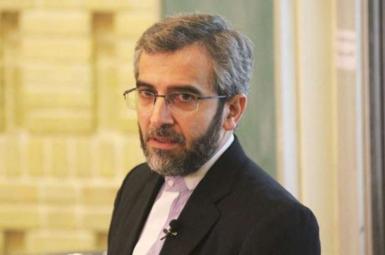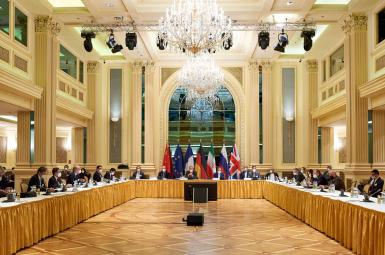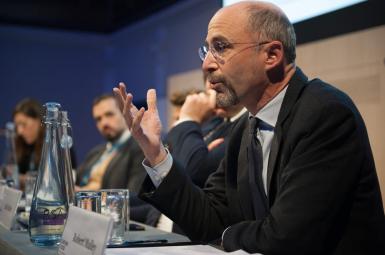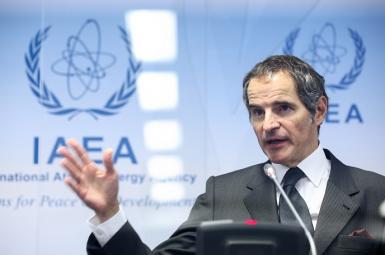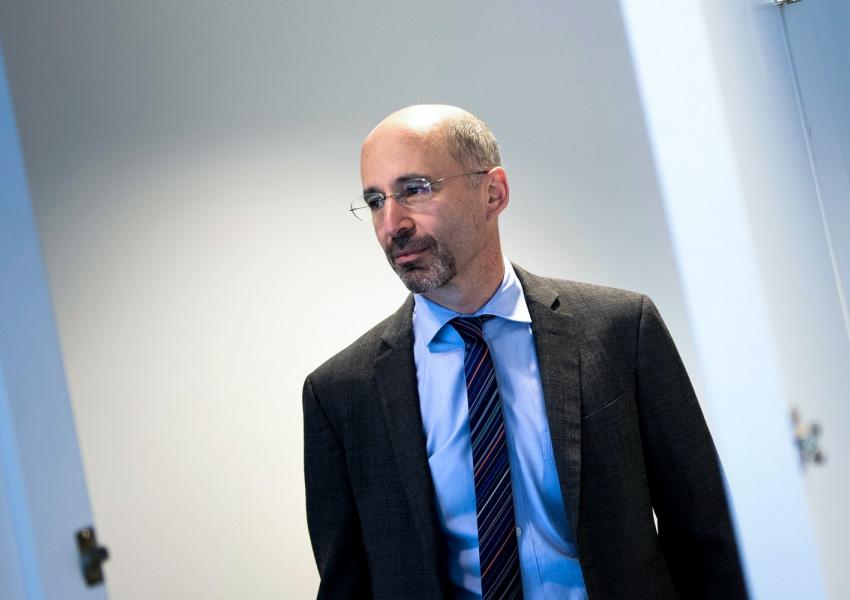
US Envoy Working On Alternatives To Iran Nuclear Deal
In an interview with Politico published Thursday, Robert Malley, the United States special envoy for Iran, has said he is preparing options for President Joe Biden if agreement cannot be reached in Vienna talks over Tehran’s nuclear program.
While insisting that Washington wouldn’t be in the talks “if we didn’t think [a deal] was possible,” Malley said his officials were working on contingencies. The talks that began in April have been on pause since June as the new administration of President Ebrahim Raisi (Raeesi) takes office.
One option would be a new bilateral agreement with Iran, effectively replacing the 2015 deal Tehran agreed with world powers and which the US left in 2018 before imposing ‘maximum pressure’ sanctions. Another would be fresh sanctions, apparently on top of ‘maximum pressure,’ agreed with “European allies” − presumably meaning France, Germany and the United Kingdom, the ‘E3,’ who were signatories of the 2015 deal, the JCPOA (Joint Comprehensive Plan of Action), alongside China and Russia.
Malley said that a return to the JCPOA remained “in the cards,” since both the US and Iran had expressed a desire to revive it. Malley also recognized that the slow progress in the Vienna negotiations reflected Iranian mistrust after the Trump administration abandoned the JCPOA and imposed ‘maximum pressure,’ as well as from the transition in Tehran.
But Malley noted that “the talks drag on” while Iran’s nuclear program continued. “If Iran’s nuclear advances progress,” he said, “and Iran continues to take provocative nuclear steps, not even mentioning their regional provocations … that pulls in the other direction” − away from agreeing JCPOA revival.
The E3 released a statement Thursday calling Iran’s atomic activities “all the more troubling” given the Vienna talks had been “interrupted upon Tehran’s request for two months now and that Iran has not yet committed to a date for their resumption.”
The Europeans accused Iran of shunning negotiations while “instead establishing facts on the ground which make a return to the JCPOA more complicated.” The E3 have long been concerned at the way Iran has, since Trump left the JCPOA, built up nuclear expertise and experience, improving the program quantitively as well as qualitatively.
The Vienna talks, which began before lapsing for Iran’s June presidential election, have struggled over which US sanctions breach the JCPOA, and exactly how Iran’s developing nuclear program might come back within JCPOA limits.
Malley’s interview is his clearest indication yet that the Biden administration is ready for the JCPOA talks to fail. To pose a question mark over their success, he said “at least makes us very aware of the fact that it is certainly not a done deal, that it’s a legitimate question whether we will be able to come back, and that we have to be prepared for a world in which Iran’s intentions are not to go back into the [pact], at least not in a realistic way.”

